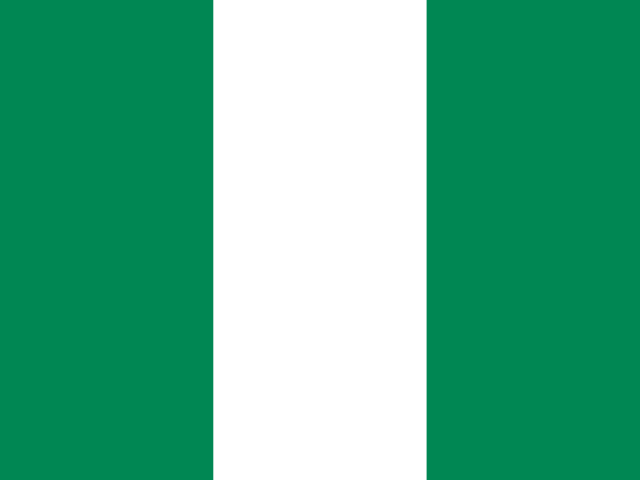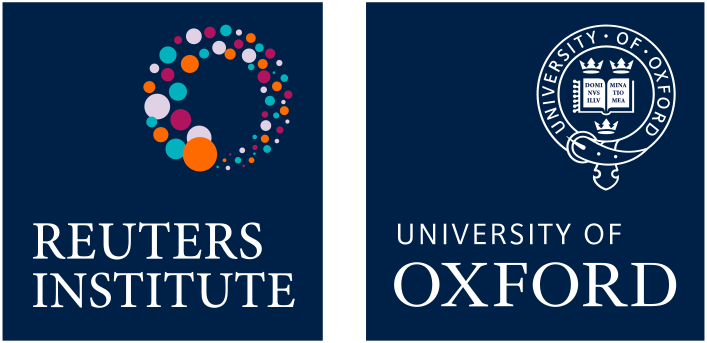
Nigeria
Nigeria’s media landscape is at a pivotal moment amid rapidly changing consumption patterns, threats to press freedom, and a potential new wave of disruption from artificial intelligence (AI). The news industry continues to transform and innovate but economic pressures including cuts to US budgets for media support cast a shadow over its future.
Public and private national broadcasters remain key sources of information for most Nigerians. The Nigerian Television Authority (NTA), as the country's largest public broadcaster, maintains a wide reach through its network of stations across Nigeria alongside privately owned Channels Television, Arise TV, TVC News, and African Independent Television. Foreign broadcasters such as the BBC, CNN, and Al Jazeera are also popular, with the BBC’s multilingual reach boosted by rebroadcasting agreements. The country also supports around 100 national and local print titles, of which the best known include The Punch, The Nation, Vanguard, The Guardian, and The Premium Times.
These traditional sources, however, are losing reach as digital and social media play a bigger role, with influencers and citizen journalists frequently breaking stories ahead of mainstream media. X experienced a 9pp increase in news usage this year, reaching 49% of our survey sample which is made up of mainly English-speaking, online news users in Nigeria. Facebook (65%) and YouTube (49%) are also widely used for news, with many newsrooms leveraging the latter for live news streaming. Conversely, WhatsApp saw a 5pp decline, dropping to 53% while Instagram and Telegram have experienced modest growth.
The Nigerian media market continues to grow with total revenues expected to reach US$540.50m by 2029 with around half coming from digital. This has encouraged a range of digital start-ups as well as new investments by established media. The South African Times has entered the market facilitated by the African Continental Free Trade Area (AfCFTA)1 and digital-born Urban Express News launched a print edition in Lagos and Abuja to cater for readers preferring traditional formats.
Despite these innovations, rising operational costs, declining advertising revenues, reduced donor funding, and fluctuating exchange rates threaten media sustainability. While digital media platforms are growing, they generate lower ad revenues compared to legacy platforms such as TV and print – and less than Western counterparts. Nigerian news media rely heavily on advertising for online monetisation, but changes to Google’s search algorithms and a consequent decline in revenue have further strained their financial stability.
Investigative journalism, once a cornerstone of Nigeria’s media landscape, has become increasingly reliant on funding from organisations such as Internews and the National Endowment for Democracy (NED).2 The recent United States funding cut has had a severe impact on journalists participating in journalism fellowships, including the Cable News Foundation’s Amplifying Climate Storytelling Fellowship programme, and has affected media outlets that depend on these grants to sustain their operations. This has resulted in fewer investigative reports and a reduced capacity to pursue in-depth reporting.
Meta’s plans to discontinue its fact-checking programme in the United States has raised alarm bells for the Nigerian Fact-Checking Alliance (NFA), whose members are heavily reliant on the funding. Though there is no timetable for the ending of the programme outside the US, there are fears that this could lead to widespread job losses and the unchecked spread of false narratives.
Meanwhile, press freedom in Nigeria remains under serious threat, with an alarming increase in attacks on journalists. During the 2024 #EndBadGovernance protests, the Committee to Protect Journalists (CPJ) recorded 56 cases of journalists being assaulted or detained by security agencies.3 The Nigerian Guild of Editors (NGE) and the Socio-Economic Rights and Accountability Project (SERAP) have since raised the alarm, calling for urgent international intervention to safeguard press freedom and protect journalists from threats.
AI adoption is gaining traction in Nigerian newsrooms, with tools being used for tasks such as copy-editing, content illustration, content strategy, and ad targeting. Media organisations are also using AI-driven solutions to combat misinformation, with the Centre for Journalism Innovation and Development recently launching Dubawa.ai, an AI-powered fact-checking chatbot to verify information and counter false narratives, while Dataphyte introduced Nubia, a tool that enables newsrooms to analyse complex datasets and produce data-driven stories efficiently.
The Digital Switch-Over (DSO) project, spearheaded by the National Broadcasting Commission (NBC), is expected to be completed in 2025. President Bola Tinubu recently approved a 10bn naira ($6.3m) grant to accelerate the project which will enhance coverage and clarity of news channels, ensuring that more Nigerians, especially in underserved and rural areas, have greater access to credible news.
Nigeria’s complex political environment continues to shape the media agenda, driving increased scrutiny of government policies and actions. Media regulation, digital rights, and economic challenges, including inflation, unemployment, and poverty, have been central themes in media discourse, with outlets critically analysing government responses.
Tolulope Adeyemo
Code for Africa
Methodology note
These data are based on a survey of English-speaking, online news users in Nigeria – a subset of a larger, more diverse, media market. Respondents are generally more affluent, younger (18–50 only), have higher levels of formal education, and are more likely to live in cities than the wider Nigerian population. Findings should not be taken to be nationally representative.
Trust in news overall
68%
(+7)
1/48
Trust in the news has increased significantly since 2021, alongside some recent improvements in the press freedom index scores from RSF. Nigerian audiences remain highly interested in news and despite – or perhaps because of – the challenges posed by misinformation and press freedom, leading brands that are seen as largely independent, such as BBC News, ChannelsTV, and The Punch, remain credible sources for most Nigerians.

